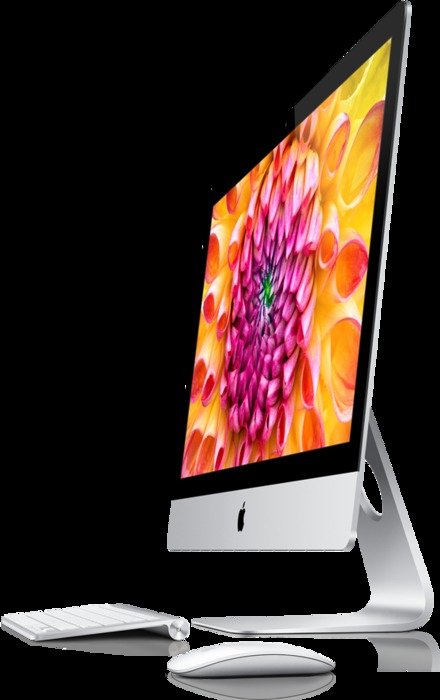An iMac will set you back a minimum $1,200. (courtesy Apple.com)
If persistent rumors of Apple's introducing a low-cost version of its all-conquering iPhone -- rumors gaining credibility with each passing day -- turn out to be correct, it will mark a turning point for the Cupertino, Calif., tech darling. But you have to wonder what Steve Jobs would think about it.
Simply put, Apple has never before used price as a selling point for its products, depending instead on a perception of superiority based on design, difference and desirability.
Apple products have always attracted customers looking for a cutting-edge product that would somehow speak to their own "leader of the pack" aspirations -- and were willing to pay a premium for it.
This has led to -- and maintained -- a loyalty to Apple products that allows the company to compete with products costing much more that any equivalent offering of the competition, a situation still in place that highlights the unexpectedness of a low-cost iPhone or any "price-competing" Apple product.
Step into any big-box retail store today with the intention of buying a computer and you can choose among any number of Window-based PCs, complete with tower, monitor, keyboard and mouse, all hovering around the $500 price point.
Insist on an Apple equivalent? An all-in-one iMac will set you back a minimum of $1,200; a Mac Pro will hit your credit card to the tune of $2,200, and that's just the tower -- monitor and all the rest extra.
Or are you're a road warrior looking for a laptop? $250 and up will put a PC laptop in your briefcase; insist on an Apple, and the least expensive MacBook is likely to require $900.
You'd be hard pressed to name another consumer product category where a company has competed successfully for years offering products roughly equivalent in performance at more than twice the price.
So how does Apple do it? No one denies Apple products are quality offerings. The rest is down to award-winning design, name recognition, fanatical customer loyalty and a few more intangibles.
In the Steve Jobs era, the thought of Apple lowering itself to the indignity of a slug-fest in the price-war arena would have been unthinkable; but an Apple led by Tim Cook seems willing to do so, at least when it comes to the iPhone, arguably the company's most iconic and successful product.
Why?
Well, for one thing, it's a market too big for even Apple, even with its upmarket history, to ignore; some analysts predict low-cost smartphones will account for half of all smartphones sold by 2018.
Almost every maker of Android devices has a smartphone with which to compete in that increasingly attractive market; Apple has none.
Most other smartphone makers' offerings cover the entire market spectrum from cheap to premium. Apple may sit at the very top of the premium mountain, but that's a position that may not serve it well in the future.
Apple will likely never go full-on cheap -- Tim Cook will ever be cognizant of Steve Jobs' legacy -- but by offering an iPhone in plastic instead of aluminum with a few lower-cost components, as current rumors have it, they could still grab a piece of an ever-growing market.
Such an iPhone might not yield the impressive profit margins Apple is used to, but it would still make money.
And whatever else Steve Jobs may have felt about his company, he was never so focused on Apple's leading-edge cachet that he forgot it was also about making money.















